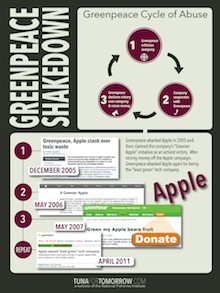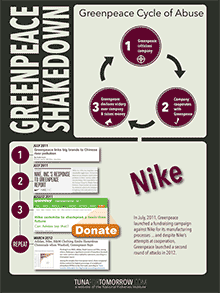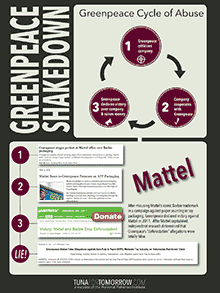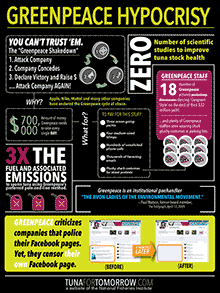Greenpeace USA’s letter to the editor in the Wall Street Journal suggests the U.S. and global tuna processors are not aligned on sustainability goals and takes credit for European processors’ commitment to reduce bycatch using FAD free, pole and line or any other sourcing method that has bycatch rates comparable to purse seine fishing on free swimming schools.
The International Seafood Sustainability Foundation (ISSF) has said that through the work it is leading to reduce bycatch in tuna purse seine fisheries, the amount of discarded bycatch in purse seine fisheries on floating objects will be reduced by 50% by 2015.
What Greenpeace doesn’t tell you is that most of these commitments, whether made by individual companies or by ISSF, are virtually identical including the timing for achieving them.
The fact remains Greenpeace devotes zero dollars to tuna sustainability research or bycatch mitigation efforts. Greenpeace continues to reject offers to actually participate in sustainability work as part of the ISSF’s Environmental Stakeholder Committee. And Greenpeace continues to raise money for itself off its contrived plight of the tuna campaign. These are all points publically made in the Wall Street Journal Op Ed published on November 8th.
Greenpeace has not only lost its way as an organization, it has lost its ability to see past the choir to whom it so often preaches, before passing the hat to raise a few more bucks. In its letter, Greenpeace insists its tuna campaign is addressing a growing popular concern. Reading the comments string that follows its letter and the comment string that follows the Op Ed of November 8th reveals not only no such popular concern but sound and directed criticism of Greenpeace.








